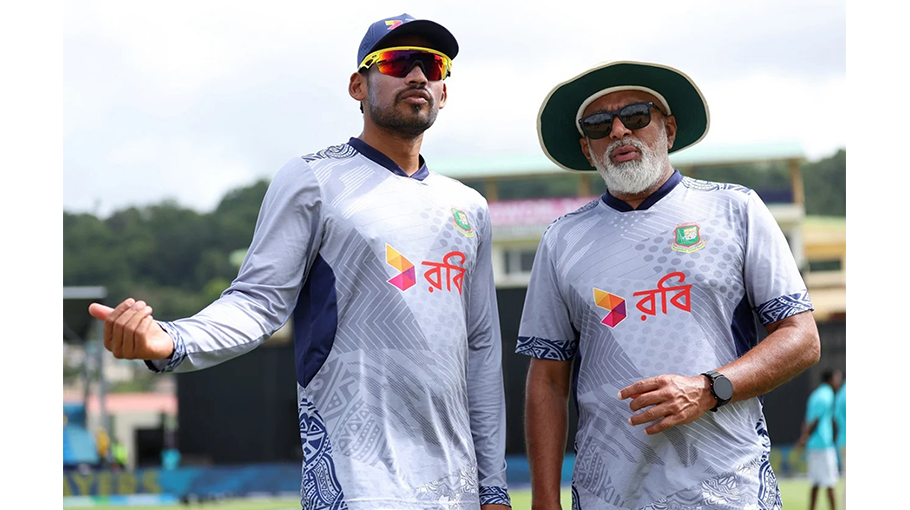Time to hold Hathuru accountable


The crux of the matter within the Bangladesh cricket team's echelons is not merely a question of ability but one of ambition—or the conspicuous absence thereof. The prevailing atmosphere is one of complacency, where mediocrity is not just accepted but seemingly aspired to, with the principal actors lacking any vision for excellence.
Team’s recent endeavours is one that cannot be recounted without invoking the figure of Chandika Hathurusingha. His tenure as head coach has become synonymous with a troubling lack of ambition that has overshadowed the team's capabilities. Under his guidance, a culture of contentment with mediocrity has been cultivated, where the pursuit of excellence seems to have been forsaken for the safety of the status quo.
This was starkly evident in the T20 World Cup last month, where Bangladesh missed a historic opportunity to progress to the semifinals for the first time. Tasked with scoring 116 runs in 12.1 overs against Afghanistan to secure a spot, the team, after a few setbacks, chose to aim for a win rather than the required run rate—a decision that betrayed a lack of competitive spirit.
The captain, Najmul Hossain Shanto, later defended this approach, which many dismissed as nonsensical, stating that the focus shifted to winning the match after early wickets fell, despite such a victory being inconsequential.
While Shanto has faced widespread criticism for this rationale, including from BCB president Nazmul Hassan Papon, Hathurusingha himself has seemingly evaded direct accountability. His post-qualification remarks—that reaching the Super Eight was the team's goal and anything beyond would be a bonus—set a tone of complacency that resonated through the team's subsequent performances.
After Bangladesh's first Super Eight qualification in over a decade, Hathurusingha suggested that the team had already met their tournament objective, and anything beyond was a bonus.
This sentiment was reflected in the team's lacklustre performances against Australia and India, and when a rare opportunity arose, they failed to grasp it, seemingly content with their 'bonus' stage.
Since Hathurusingha's return as coach, Bangladesh have participated in two World Cups, with little to show for it. His tenure has been marked by some of the team's most lacklustre campaigns, yet his position appears unassailable, with scant demand for accountability akin to that of the BCB.
In sports, it is customary for coaches to share responsibility for failures alongside their players, yet Hathurusingha appears exempt from this norm.
Hathurusingha's journey as coach offers a stark illustration of how a culture of mediocrity can infect all involved. Initially hailed as a shrewd tactician, his second stint has seen him assimilate into Bangladesh's risk-averse, minimalist cricketing culture.
The BCB's persistent short-sightedness, mirrored by Hathurusingha, forecasts a future of uninspiring performances and ingrained mediocrity.
With the 2025 Champions Trophy on the horizon, it would take unwarranted optimism to expect an upturn in fortunes under Hathurusingha's guidance.
The pressing question remains: When will the BCB hold Hathurusingha accountable for the team's shortcomings, or will they continue to uphold the status quo, knowing that to challenge it would mean facing scrutiny themselves?




